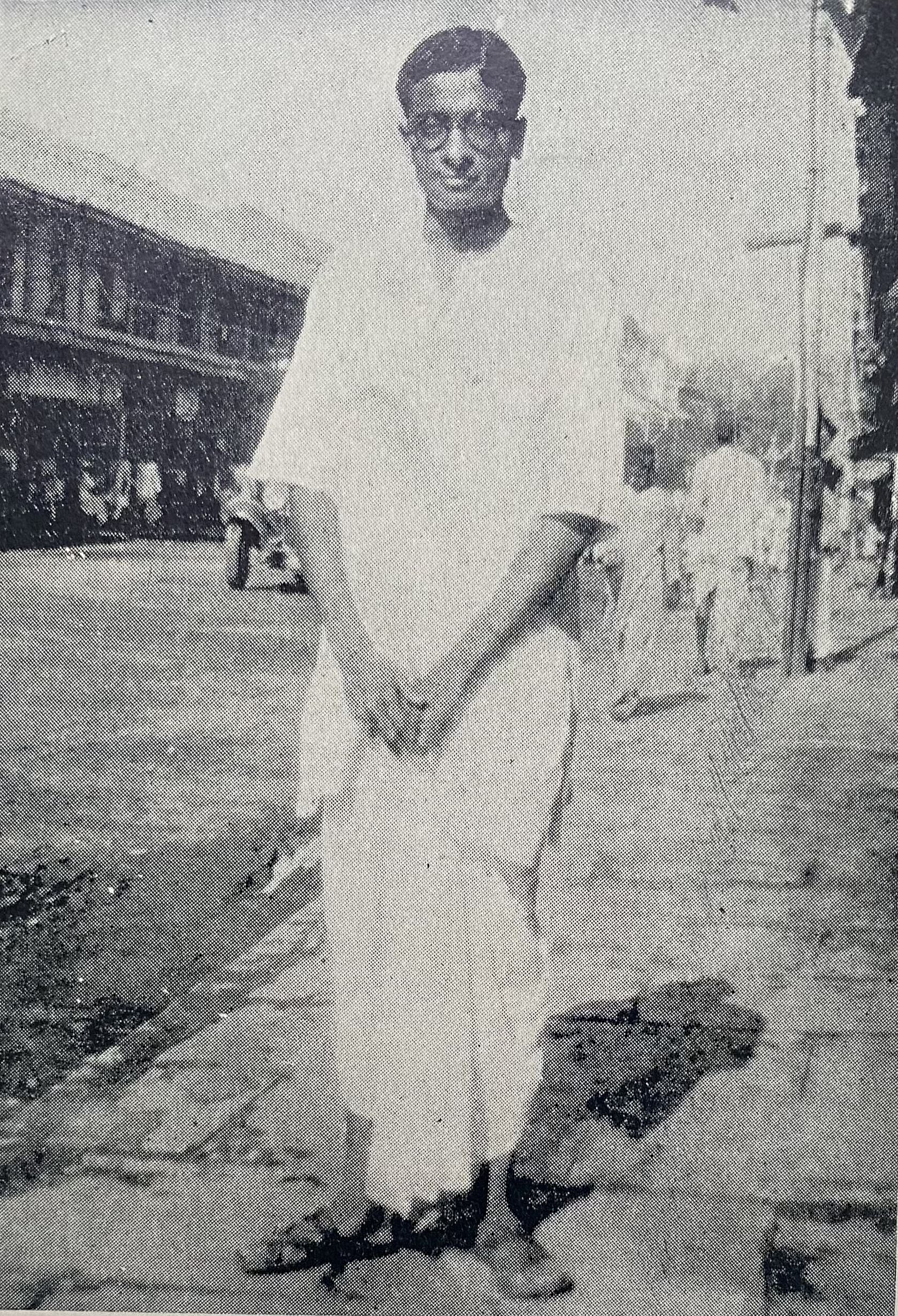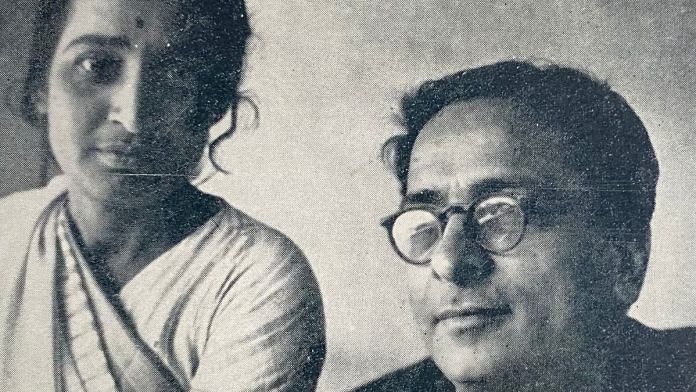In a city where the communist ideology is mostly dismissed, Dinkar Mehta became the sole communist to be elected Mayor of Ahmedabad in 1966. But it wasn’t an easy journey. A former student at Gujarat Vidyapith founded by MK Gandhi, Mehta had undergone a significant ideological shift and embraced communism after a period of intense introspection. Born in 1907 in Chikhli in South Gujarat, Mehta showed such a strong spiritual propensity that his family speculated he might choose the life of an ascetic.
The emergence of Gandhi in the national movement captivated him. After completing his education in Surat and Bombay, he enrolled at Gujarat Vidyapith in 1926. At the well-stocked library of the university, Mehta delved into the history of the Russian Revolution at a time when he was in close contact with Gandhi and likened his ideology to Lenin’s. The only difference between the two ideologies, according to Mehta, was the use of violence. Shapurji Saklatwala, a Tata representative in England who had turned communist, visited Gujarat Vidyapith for a lecture. It sowed the seeds of communism in Mehta’s mind.
An active participant in the Bardoli Satyagraha, Dandi March, and Dharasana Salt raid, Mehta was imprisoned multiple times, which greatly impacted his health. The period of rest that followed, when he had ample time for reading and introspection, eventually led him to question Gandhi’s approach. He found his vision of a classless, Stateless society built through non-violence, non-possession, and change of heart to be an idealistic outlook. Moreover, he started seeing capitalism as the root cause of poverty, inequality, injustice, and violence.
Also read: Gujarati archaeologist Bhagvanlal with little English, lot of Sanskrit helped British read edicts
Getting emboldened
Mehta’s views became emboldened after he discussed his ideas with his friends at Malsar on the banks of the Narmada river. Through debates and discussions, he explored his convictions more. He found his faith in Gandhi to be like what Marx termed as ‘False Consciousness’. He feared becoming a mere component of the capitalist machinery if he did not liberate himself from it. Mehta even tried to bring communist knowledge to readers — he translated Maurice G Hindus’s Humanity Uprooted into Gujarati, titling it Palatun Russia, which translates to ‘The Changing Russia’.
He believed that Gandhi’s philosophy was not revolutionary but rather aimed at raising Indian capitalism to an ideal level. This led him to break away from the Congress and establish the Gujarat unit of the Congress Socialist Party in 1934 in the hostel for Dalit students at Gandhi’s Ashram. With the goal of publishing socialist literature, he initiated ‘Navi Duniya Karyalaya’.

“The philosophers have only interpreted the world in various ways; the point is to change it,” said Karl Marx. This sentiment was succinctly captured by the Gujarati poet and a fellow student of Vidyapith, ‘Sundaram’, in the slogan ‘Ghanu Vicharyun, Have Palatavun’, which translates to ‘Enough thinking, now time to change’. In 1934, Mehta spearheaded a mill workers’ strike in Ahmedabad, which was soon quelled by the Congress-backed Majoor Mahajan Sangh.
Mehta took over the Gujarati monthly Nayyug and transformed it into a platform for socialist-communist ideology. He also collaborated with several other publications. However, all of them were forced to shut down due to the suppression of communists during the Second World War.
Also read: Cocaine, Jinnah, films, azan call—Visami Sadi set benchmark for Gujarati photo magazines
Sardar Patel’s turf
It was difficult to exercise communist politics from Ahmedabad, where Vallabhbhai Patel, an open critic of communism, held sway. Nonetheless, Mehta managed to conduct the first session of the Gujarat Congress Socialist Party in the city. He also formed the Mill Workers’ Union with the help of other comrades and combined it with the All India Trade Union Congress.
Communist sentiment in Ahmedabad grew stronger when nearly 50,000 mill workers went on strike after the Congress came to power in seven provinces in the 1937 election. As a national secretary of the Congress Socialist Party, Mehta travelled across the country. He also went underground when the British banned the Communist Party of India (CPI). The ban lasted eight years and was lifted a few months after the Quit India Movement. According to Mehta, the lifting of the ban severely damaged the prestige of the communists. Students and the middle class started seeing them as puppets of the British.
Mehta married a fellow Gujarati, Nalini, at the Bombay commune. They were both involved in other communist activities, associating themselves with Lok Natya Sangh and Kisan Sabha. There were numerous factions within the party both before and after Independence. Many left communism to assume political power, but the Mehtas never compromised their ideological position.
During the Mahagujarat movement, an agitation for the formation of a separate state from bilingual Bombay, the communists were part of the anti-Congress alliance called Mahagujarat Janta Parishad. Mehta was elected as one of the vice-presidents, only to become the president when he was already an officer bearer of CPI (M).
Also read: Bhailal Patel—Gujarati engineer who built Vidyanagar & Sardar Patel University had no govt aid
A lifelong commitment
When Ahmedabad Municipal Corporation elections were announced in 1965, nine members of Samyukta Kamdar Sangharsh Samiti, including Mehta, were in jail. The Samiti was a wing of the Mahagujarat Janta Parishad and was heavily populated by the communists. Eight out of the nine imprisoned communists contested the election from jail and won. However, the struggle for the post of the mayor ensued. As a compromise, a rotational system was accepted in which each party would have their elected member serve as mayor for one year.
Mehta, a veteran leader, wasn’t a part of the race to power. However, the party proposed his name a year later, to which rival communist factions and other groups reacted negatively. Indulal Yajnik, a popular leader and face of the Mahagujarat movement, also opposed, fearing that his party’s chances in the 1967 Lok Sabha election would be jeopardised if they supported a communist candidate for mayor.
Despite facing opposition from many Parishad leaders, Mehta was elected mayor and served from 1966-1967. A critic of the Congress’ policy of prioritising city beautification over providing basic facilities, Mehta also expressed discontent over the inequality in the taxation framework. He was disheartened by the limited power of the elected representatives of the Municipal Corporation as compared to the power of officers and the uncooperative state government dominated by Congress.
Although Mehta never won in an assembly or Lok Sabha election, he always put up a strong fight. Like many communists, he was imprisoned on several occasions after Independence for participating in various protests. During the Emergency period, at the age of 69, he extensively toured 110 villages in Gujarat over 38 days to understand the people’s situation firsthand. His experiences from this tour were documented in a Gujarati title Palatatan Gamdan (1977)—or ‘the changing villages’. Till his death in 1989, he maintained an unwavering belief in the impending revolution.
Urvish Kothari is a senior columnist and writer based in Ahmedabad. He tweets @urvish2020. Views are personal.
This article is a part of the Gujarat Giants series.
(Edited by Humra Laeeq)



